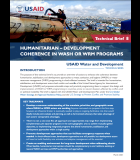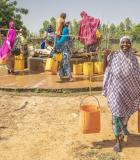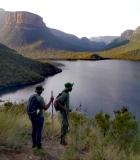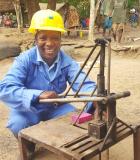Sustainable and Thriving Environments for West Africa Regional Development Program (STEWARD III)
STEWARD III was a forest conservation and sustainable livelihoods project working in trans-boundary priority zones in the Upper Guinean Forest ecosystem, occurring in Guinea, Sierra Leone, Liberia, and Côte d’Ivoire. It was the third iteration of the STEWARD program. STEWARD I was characterized as a design phase, and STEWARD II as a pilot phase. STEWARD III was intended to be the implementation phase.
Activity Description
The project's goals were to:
- Conserve biodiversity and improve rural livelihoods in critical trans-boundary landscapes in the Upper Guinean Forest ecosystem;
- Produce harmonized policies and legal frameworks for natural resources management (NRM) in a regional context; and contribute to national strategic plans on climate change in the Mano River Union states; and
- Promote resiliency in the face of climate change.
STEWARD III added additional activities to those of STEWARD II. In addition to biodiversity conservation in transboundary priority zones, STEWARD III was to improve the resilience of local communities in adapting to climate change, and improved livelihoods, food security, and market linkages. STEWARD III was also to improve regional and national frameworks for REDD+ and build REDD+ readiness, and increase sustainable access to safe water and sanitation and improved hygiene.
Expected Outcomes
- Biodiversity ecosystems conserved in target areas;
- Resilience to projected adverse effects of climate change improved;
- Greenhouse emissions reduced in target areas; and
- Access to adequate supplies of clean water improved in target areas.
Actual Outcomes
- As a result of increased community awareness of the relationship between ecosystem integrity and human welfare, 500,000 hectares of biologically significant areas and natural resources are under improved natural resources management, laying the foundation for this management to become sustainable.
- 30,000 people, including 10,500 women, have increased incomes derived from sustainable natural resource management and conservation.
- 13,500 people have increased knowledge, skills and tools to better cope at the community level with the adverse impacts of climate change, while at the same time slowing carbon emissions by better managing bush fires to prevent them from becoming catastrophic.
- The Mano River Union (MRU) secretariat now has Geographical Information Systems tools and technical knowledge critical to informed policy decision making.





